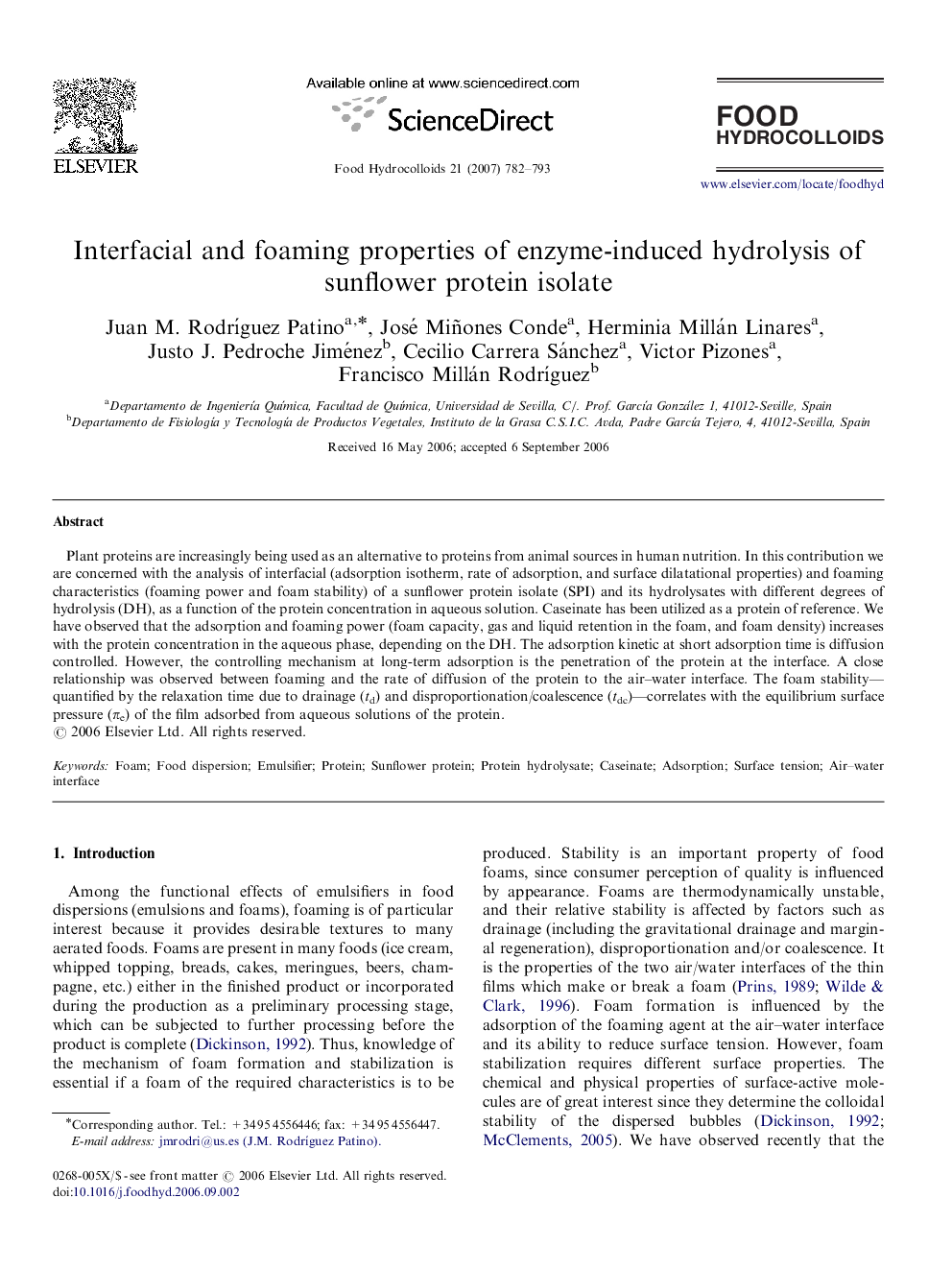| Article ID | Journal | Published Year | Pages | File Type |
|---|---|---|---|---|
| 605938 | Food Hydrocolloids | 2007 | 12 Pages |
Plant proteins are increasingly being used as an alternative to proteins from animal sources in human nutrition. In this contribution we are concerned with the analysis of interfacial (adsorption isotherm, rate of adsorption, and surface dilatational properties) and foaming characteristics (foaming power and foam stability) of a sunflower protein isolate (SPI) and its hydrolysates with different degrees of hydrolysis (DH), as a function of the protein concentration in aqueous solution. Caseinate has been utilized as a protein of reference. We have observed that the adsorption and foaming power (foam capacity, gas and liquid retention in the foam, and foam density) increases with the protein concentration in the aqueous phase, depending on the DH. The adsorption kinetic at short adsorption time is diffusion controlled. However, the controlling mechanism at long-term adsorption is the penetration of the protein at the interface. A close relationship was observed between foaming and the rate of diffusion of the protein to the air–water interface. The foam stability—quantified by the relaxation time due to drainage (td) and disproportionation/coalescence (tdc)—correlates with the equilibrium surface pressure (πe) of the film adsorbed from aqueous solutions of the protein.
